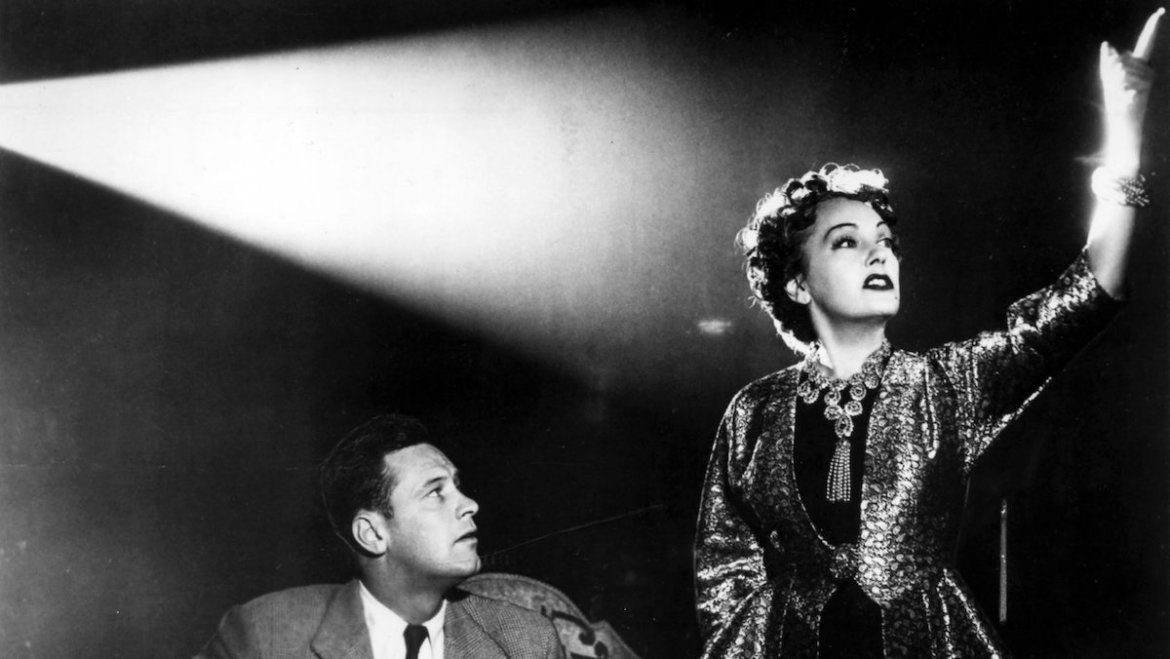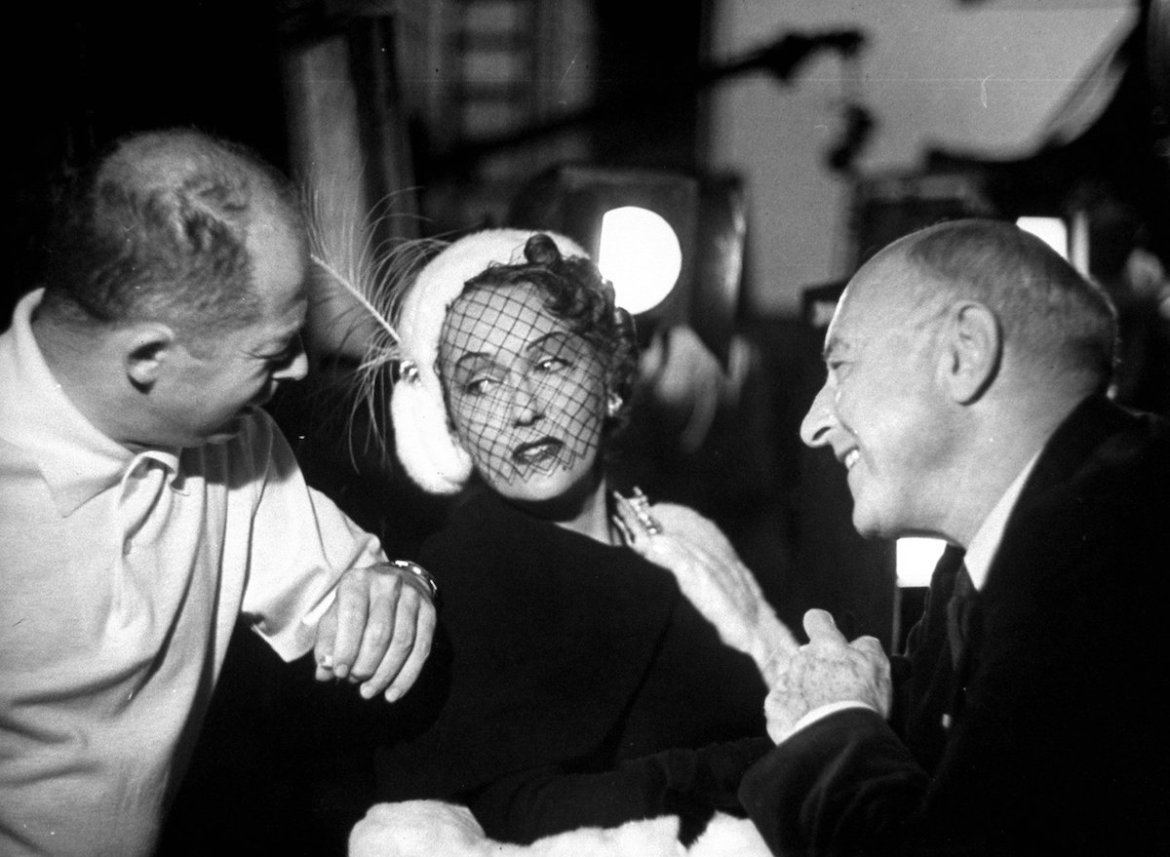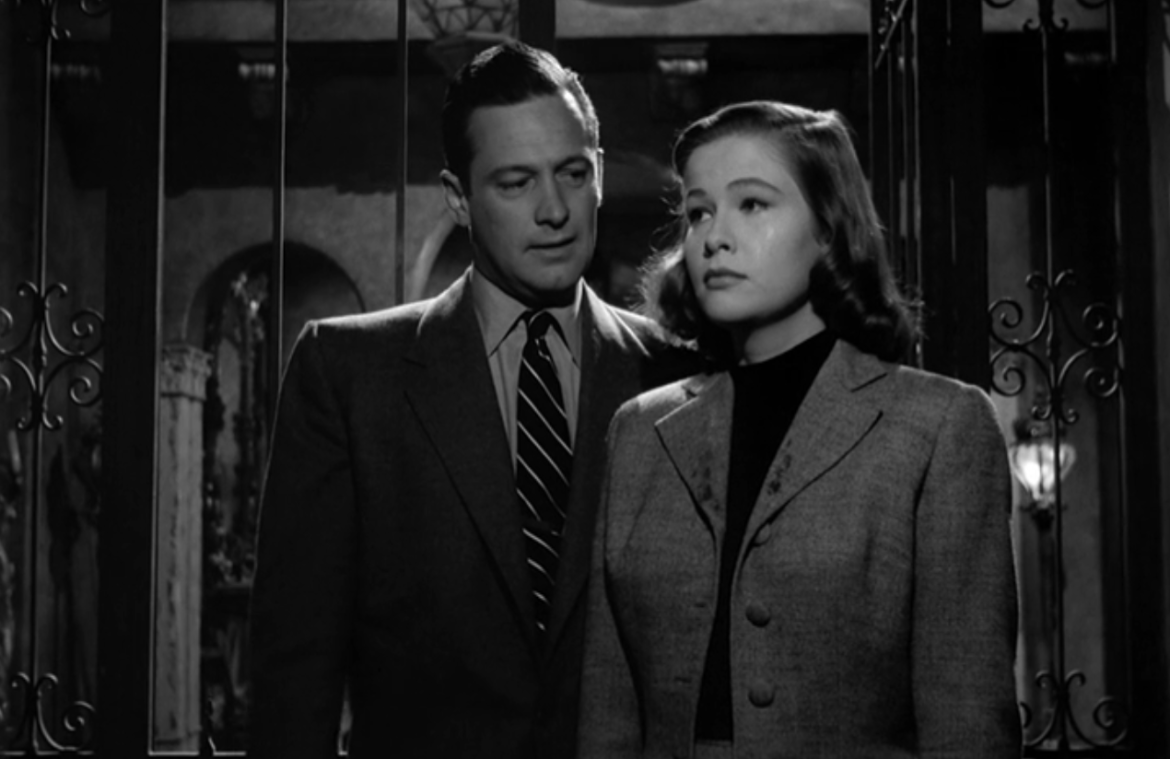Sitting down to think about Sunset Boulevard, the movie all at once seems inherently complicated when considering questions of feminism and gender relations. Billy Wilder’s critique of mid-century Hollywood all-at once crafts fascinating female characters and fascinating questions exist. Is it the film asking these questions? Or is it easier to propose a reading of this narrative from a contemporary perspective. With each continued viewing, Sunset Boulevard grows increasingly complicated to unpack.
Sunset Boulevard follows struggling, hunky screenwriter Joe Gillis (William Holden). One day, his car breaks down outside the mansion of silent film star (and wanna-be screenwriter) Norma Desmond (Gloria Swanson). With nowhere else to go and only a host of unpaid bills waiting for him, Gillis soon finds himself a script doctor and kept boy toy for the aging silent film queen. However, complications soon arise when Gillis finds himself drawn to an up-and-coming script reader with aspirations of writing (Nancy Olsen) who also has eyes for Joe. Billy Wilder direct the film from a script he co-wrote with Charles Brackett and D.M. Marshman Jr.

Everything in Sunset Boulevard revolves around Norma Desmond as a character. The movie’s pre-production history has been fairly well documented with names like Mae West, Mary Pickford and Pola Negri being tossed around as potentials to play Desmond before ultimately settling on Swanson to play the aging silent film star. Ultimately, it is the depth of Swanson’s performance defining the character.
Norma Desmond is a meaty, fierce character role for Swanson placing her squarely against those of her fierce contemporaries like Joan Crawford and Bette Davis. Starring roles for women like this are still rare in Hollywood, let alone in the 1950s. Aside from Swanson and Davis respectively, the biggest box-office draws of 1950 included names like Elizabeth Taylor, Deborah Kerr and Judy Holiday each of whom represented a new generation of actor and only Holiday really stood apart from standard the standard leading lady persona, instead taking on character parts.
With each passing viewing, the vulnerability Swanson injects into her portrayal of Norma is staggering. In the hands of another actress, Desmond could easily be made coldly villainous. In the case of this character, that wouldn’t necessarily be a miscalculation. In no way is Norma the hero of the piece. However, Swanson manages to mine sympathetic ground in the complicated character construction. In her hands, Norma needs Joe’s companionship. Is it because the young writer is one thing she can control? Or is it that she simply needs the affection. She’s been living on her own for so long that the sudden appearance of the writer is a welcomed change to her rather humdrum life with husband turned director turned butler Max (Erich Von Stroheim).
Joe, for that matter, seems at times, to legitimately care for Norma. He rushes back to the house once he receives word of her suicide attempt. Much of the second act of the film shows Joe and Norma in a fairly okay place, as shown by the Charlie Chaplin sequence and his concern when he learns about the car confusion. While it isn’t a relationship (hence why Betty plays such an important role), Joe does seem to have sympathy for Norma and shows definite concern for her fragile state.

At the same time, the narrative is also keenly aware of the tricky development of Norma as a character. It’s too simple to call her a villain. She’s not comedic relief meant to be laughed at by the masses. Sunset Boulevard reminds us of that very deliberately when the actress returns to the studio lot for the first time in decades. As she leaves, an assistant director is dismissive of Norma. Her old friend and director CB DeMille (in a cameo) defends her,
“You didn’t know Norma Desmond as a lovely little girl of 17- with more courage, wit and heart that ever came together in one person…. a dozen press agents working overtime can do terrible things to the human spirit”.
In this line, DeMille is seemingly acknowledging everything Norma has gone through. She’s not necessarily a villain, but a woman whose gone through a tough time.
Looking further into questions of femininity, the film provides a second named character with the character of Betty. She’s young, attractive and confident. Suddenly, Joe is reminded of everything he’s missing with Norma. Betty represents what he could have. And as such, this makes her a threat to Norma.

The Betty/Joe relationship is an interesting one. The trend of this era would be to build her up as the more traditionally feminine. This isn’t the case. In fact, Betty walks away from her pending marriage to Artie (Jack Webb) to write a script with Joe. Betty is smart, clued in and knows what she wants… to write a script. She’s not the typical good girl, oh-so-common to film noir.
Re-examining the classic 1950s noir Sunset Boulevard, The film proves to be a fascinating study in regards to gender and sexuality. The script crafts deep and interesting characters, standing apart from the far more rigid gender norms of the post-war period.

Carol
Great analysis! One of my favorite movies/characters of all time.
youssera's
Interesting post. I love the film and I have never really regarded it from this angle , thanks for sharing